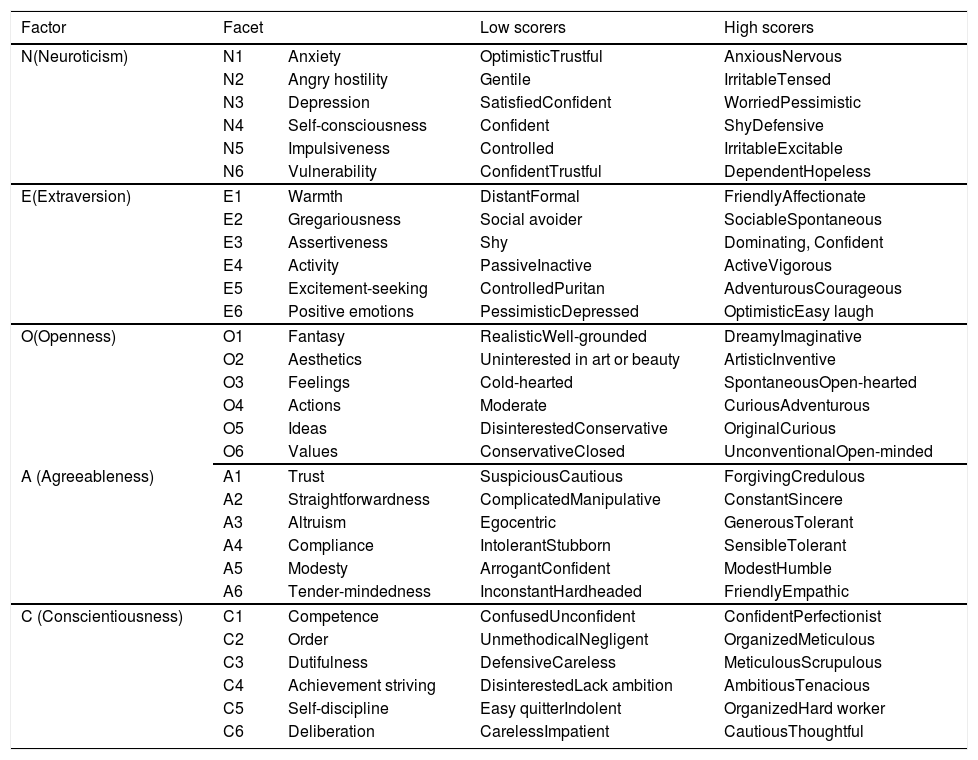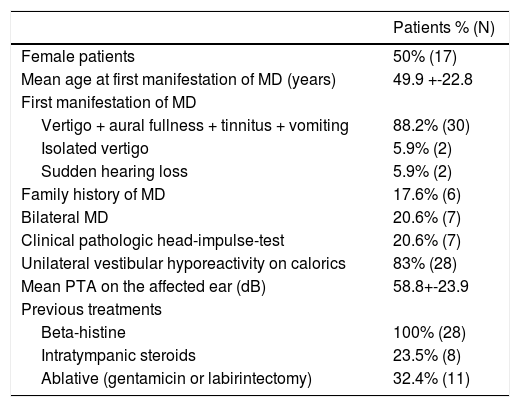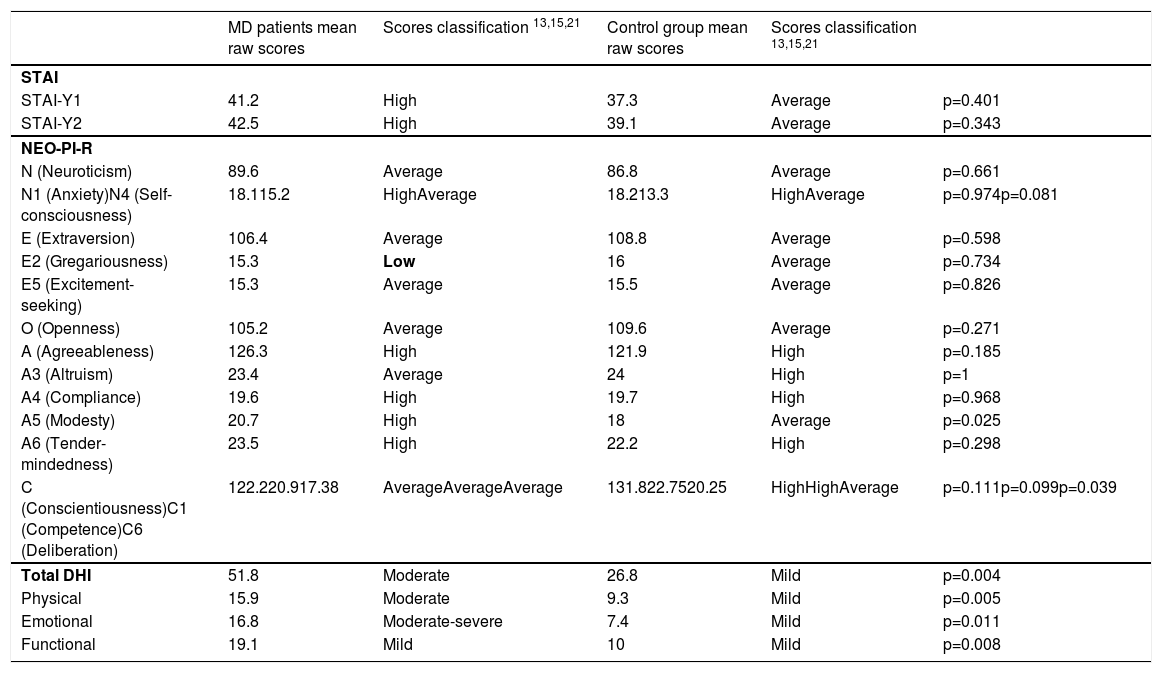Psychological factors in vertigo patients have been extensively studied but the role of anxiety and personality traits in the clinical course of Ménière's disease (MD) is unknown. The objectives of this study are to identify and characterize psychopathology in MD and to find risk factors for an increased rate and intensity of crisis and chronic symptoms.
Materials and MethodsWe performed a transversal study in all patients diagnosed with definite MD in our department during a 5-year period. Sample subjects were interviewed in 3 steps: first, an otorhinolaryngologist collected information about clinical and pharmacological background of MD; second, a psychiatrist screened for mood, anxiety and personality disorders; in a third stage, the patient completed the DHI (Dizziness Handicap Inventory), STAI-Y (State Trait Anxiety Inventory), NEO-PI-R (Neo Personality Inventory Reviewed) and VAS (Visual Analogue Scale) for vertigo and dizziness. Statistical analysis was performed to search for risk factors for multiple and intense crisis and chronic symptoms.
ResultsThirty-four patients completed all 3 phases of the study. A predominant dysfunctional personality trait was identified in 80% of patients (predominantly cluster C type), 35% were being treated with psychiatric medication and 34.4% had a considerable mood or anxiety disorder. All patients scored high (>7) in VAS during crisis. There was a statistically significant positive correlation between crisis rate and STAI, anxiety-subscale (N1) in NEO-PI-R, VAS and DHI scores (p<.044). Crises were more common in bilateral MD (p=.041). DHI scores were higher with higher STAI and N1 (p=.001). Disease duration and pure tone average were found to have a positive moderate correlation (p=.017).
ConclusionsThe positive correlations between crisis rate, chronic dizziness and anxiety-related personality traits reveal a bidirectional and intimate relationship between personality, anxiety and MD, affecting these patients’ quality of life. These results support the relevance of prospecting adjuvant psychological and psychiatric approaches to these patients.
Se han estudiado ampliamente los factores psicológicos en los pacientes con vértigo, pero se desconoce el rol de los rasgos de ansiedad y personalidad en el curso clínico de la enfermedad de Ménière (EM). El objetivo de este estudio es identificar y caracterizar la psicopatología en la EM, y encontrar los factores de riesgo del incremento de la tasa de crisis, intensidad de la crisis y síntomas crónicos.
Materiales y métodosRealizamos un estudio transversal en todos los pacientes diagnosticados de EM definida en nuestro departamento durante un periodo de 5 años. Se entrevistó a los sujetos de la muestra en 3 pasos: en primer lugar un otorrinolaringólogo recabó información sobre los antecedentes clínicos y farmacológicos de EM; en segundo lugar, un psiquiatra determinó los trastornos emocionales, de ansiedad y personalidad y, en tercer lugar, el paciente completó las escalas Dizziness Handicap Inventory (DHI), State Trait Anxiety Inventory (STAI-Y), Neo Personality Inventory Reviewed (NEO-PI-R) y Escala analógica visual (EVA) en cuanto a vértigo y mareo. Se realizó un análisis estadístico para identificar los factores de riesgo de crisis múltiples e intensas y síntomas crónicos.
ResultadosTreinta y cuatro pacientes completaron las 3 fases del estudio. Se identificó un rasgo predominante de personalidad disfuncional en el 80% de los pacientes (predominantemente el clúster tipo C), el 35% fue tratado con fármacos psiquiátricos, y el 34,4% tenía trastornos emocionales o de ansiedad notorios. Todos los pacientes tuvieron puntuaciones EVA altas (>7) durante la crisis. Existió una correlación positiva estadísticamente significativa entre la tasa de crisis y la subescala de ansiedad STAI (N1) en las escalas NEO-PI-R, EVA y DHI (p<0,044). Las crisis fueron más comunes en la EM bilateral MD (p=0,041). Las puntuaciones DHI fueron más altas con valores altos de STAI y N1 N1 (p=0,001). La duración de la enfermedad y la media de tono puro tuvieron una correlación moderada positiva (p=0,017).
ConclusionesLas correlaciones positivas entre las tasas de crisis, el mareo crónico y los rasgos de personalidad relacionados con la ansiedad revelan una relación bidireccional e íntima entre personalidad, ansiedad y EM, que afecta a la calidad de vida de estos pacientes. Estos resultados respaldan la relevancia de explorar los enfoques psicológicos y psiquiátricos en estos pacientes.











